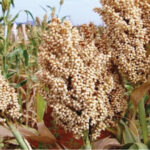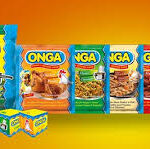The recent hike in the prices of tomatoes and pepper in Jos, the Plateau State capital, has stunned many residents.
Plateau State is one of the areas that produce the commodities in huge quantities during both the rainy and dry seasons, considering the favourable weather conditions and soil nature, which give farmers the opportunity to massively cultivate the products.
Even with the opportunity of being one of the producing states, residents of the state can no longer afford the product as their prices go beyond their capacity, talk more of other people in other parts of the country who depend on the state for supply.
The impact of the price hike is being felt across the board. Consumers are finding it difficult to afford tomatoes and pepper, which are staples in many households. The scarcity of these commodities has also affected the livelihoods of traders, restaurateurs and other businesses that rely on them. Restaurants and food vendors are struggling to maintain their menus, and consumers are being forced to seek alternative ingredients or reduce their consumption with some even cook food without tomatoes.
Stakeholders in Farin Gada, a popular perishable market, said although the high cost of goods and services had increased in recent times, the hike in price of the tomatoes, pepper and other perishable items had gone too high.
Nasiru Sani, a stakeholder and immediate past chairman of the market in an interview with Daily Trust on Sunday said, “The price of tomatoes has gone higher. The hike in price is almost highest in the last two decades. A big basket is sold between N80,000 and N100,000 while the smallest basket is sold at N26,000.
A normal bag of pepper is now sold at N60,000. This is what we used to sell at the rate of N16,000. Look at the difference. The money is huge.
So, there is inadequate supply of the product in the country.
The sudden and drastic increase in prices has been attributed to a severe decrease in supply, resulting in scarcity in the market. The crisis has been blamed on the removal of fuel subsidy, which has had a ripple effect on the entire agricultural value chain. Farmers are bearing the brunt of the increased cost and consumers are paying the price for it.
“A lot of things have contributed to the development. Government has removed subsidy. What do you expect from this development? Subsidy was helping the price to go down, but now, the price has been removed, so it is expected that prices of everything would go up.
“Farmers buy petrol at a high price to irrigate their farms. They also buy other farming inputs at a very high price. The farmers also pay high to transport their crops to the market. All their expenses must be calculated before pegging the price. Before now, farmers didn’t see fuel as anything, but today, the petrol alone is consuming huge amounts of money. You don’t expect a farmer to cultivate at loss; they need profit. This has forced farmers to increase the prices of their produce to break even, let alone make a profit. The increased cost of diesel has affected farmers who rely on it to power their irrigation systems, tractors and other machinery.
“As I am talking to you, the commodities are not available in the market because a lot of farmers did not cultivate due to high cost of petrol and other farming imputes. In this case, Nigeriens will definitely experience shortage and high increase in the price of the products in the markets. Farmers don’t have money to invest, considering the amount of money needed to cultivate. Some farmers don’t want to start and stop in the middle due to shortage of resources. The same thing applies to other perishable items.
Buyers follow farmers to farms to purchase the commodities due to the scarcity in the market. This trend has become increasingly popular, with many buyers seeking to buy directly from the source.
Usman Ya’u, a tomato seller said, “We don’t have the products in the market because there is shortage supply. Farmers don’t supply anymore because buyers follow them to the farms. This gives them the advantage to cut transportation cost and sell the product at good price. Even in the farm, the product is also very expensive.
“This shift in behaviour has changed the dynamics of the tomato market, with more buyers seeking to cut out intermediaries and deal directly with farmers. By buying directly from the farm, buyers can avoid paying markup prices to sellers and get a better deal on their tomatoes. This process also allows farmers to get a fair price for their produce without having to worry about middlemen taking a cut.
“We are left in the market without the commodities, which has affected our income. As sellers, we are feeling the impact of this new trend as our traditional role in the supply chain is being disrupted. With buyers going directly to the farms, we are no longer needed as intermediaries; and our businesses are suffering as a result. We are adapting to this new reality and find new ways to remain relevant in the market. We don’t know how the situation would be
How to remedy the problem
Sani said that for the price to go down, government must reverse the subsidy.
“For the prices to decrease, subsidies must return. The government must reconsider its decision and reintroduce fuel subsidy to support farmers. This will help reduce the cost of farm inputs and increase supply, ultimately leading to a decrease in prices. Additionally, the government must invest in irrigation infrastructure and mechanisation to reduce farmers’ reliance on diesel and other expensive inputs.
“In the short term, the government can consider implementing measures to cushion the effects of the price hike. These include providing support to farmers through soft loans and grants, reducing taxes on agricultural inputs and increasing the supply of tomatoes and pepper through imports or other means. Categorically, the hike in tomato and pepper prices is as a result of subsidy removal,” Sani added.

 Join Daily Trust WhatsApp Community For Quick Access To News and Happenings Around You.
Join Daily Trust WhatsApp Community For Quick Access To News and Happenings Around You.


